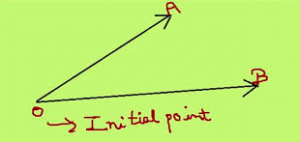
People work hard when they care about achieving results in their organization. Sometimes very hard. And yet, why is that no matter how much extra effort they may make, this doesn’t always translate into extra results? In some cases, paradoxically, the harder people work the further they seem to be from where they expect. What’s missing is knowledge and the lack of this knowledge is one of the major causes of loss of productivity and income. It’s something that every organization needs to address.
Towards the goal
In order to solve the paradox that extra effort does not produce extra results, we first need to understand that an organization is not made up of a multiplicity of independent components that all work in isolation, each one doing their bit. An organization is a system and every system must have a goal. In order to achieve this goal a series of interdependencies exist and must be operated and managed effectively. So firstly, an organization needs to have great clarity about the goal it is trying to achieve as a system. Secondly, everybody needs to be aware of that goal and how their energies contribute towards it.
Vectors
A useful analogy is to think of the energies of the people who operate these interdependencies as “vectors”. A vector is “a quantity, such as the velocity of an object or the force acting on an object, that has both magnitude and direction.” When individuals behave in a way that optimizes their efforts locally and not globally towards the goal, then their energies are not aligned with other people’s. That lack of alignment of energies towards the goal creates dispersion, as if a a team of archers all shot their arrows in different directions so none of them hit the bullseye. Each archer might be of champion level and they might try their very hardest to shoot their arrow as well as possible, but unless they all know what the target is and align their efforts, those arrows will never produce the desired result. Thinking in silos multiplies this negative effect.
Towards Quality
Hard work will not ensure quality. Best efforts will not ensure quality, and neither will gadgets, computers or investment in machinery. Dr W. Edwards Deming
Best efforts will not produce results unless aligned towards a goal. Moreover, best efforts, as Dr. Deming declared, will never be enough without profound knowledge of the processes towards which those efforts are dedicated. Unless there is statistical knowledge of the variation affecting processes and whether those processes are in control, no amount of effort will create better results. Only decision making and guidance that is based on real knowledge of how processes are behaving can lead to actual improvement.
In addition, every organization is a system and every system has a constraint, i.e. the factor that determines the pace at which the entire system produces units of the goal. Without understanding the constraint and designing the efforts in the organization around the constraint, an organization will always sub-optimize its resources.
Most people don’t lack the willingness, the desire and the strength to achieve remarkable things. It’s the job of management to enable and fuel those efforts with the right knowledge. It exists and it can be learned.
Sign up to our blog here and shift your thinking towards broader, systemic possibilities for yourself and your organization. Intelligent Management provides education and training on systemic management, W. Edwards Deming’s management philosophy and the Theory of Constraints (Decalogue methodology) in North America and Europe.
About the Blog Author and Editor
Angela Montgomery Ph.D. is Partner and Co-founder of Intelligent Management and author of the business novel+ website The Human Constraint that has sold in over 20 countries. She is co-author with Dr. Domenico Lepore, founder, and Dr. Giovanni Siepe of ‘Quality, Involvement, Flow: The Systemic Organization’ from CRC Press, New York.





I often want to tell you how much I enjoy your brief, pointed analyses. I even think I now understand why UCW Failed in 2009, forcing it to sell. We failed because recruiting had 3 silos: domestic grade XII, domestic degree completion and International, each with a different, competitative leader, and a major constraint caused by slow reaction in the registrar’s office, another silo. Yet all were working flat out and allowed too much autonomy. I wish I had known your work. But I was in another silo managing the academic programs. Ah well. At least I haven’t had to wait until St Peter told me!!
Always enjoy your responses, Bob!